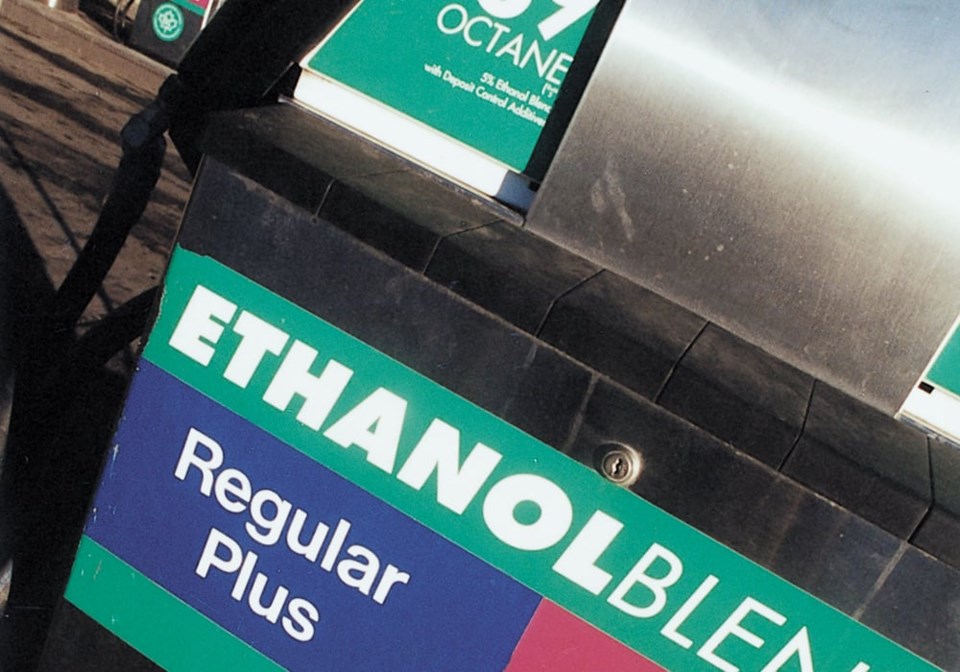SASKATOON — Canada’s biofuel groups and oilseed crushers are pleased with what it saw in .
“The best way to describe it is they’ve got the right tools in the box,” said Doug Hooper, director of policy and regulation with Advanced Biofuels Canada (ABFC).
The Canadian Fuels Association (CFA) applauded the government for announcing up to $1.7 billion in support for the sector.
“Today’s announcement sends a signal that made-in-Canada biofuels are important for this government and that measures to stimulate biofuel investments are essential to increasing production in Canada to the benefit of our economy, energy security and decarbonization,” CFA president Bog Larocque said in a news release.
“At the same time, it is disappointing that ethanol investments in Canada were not openly supported.”
The Canadian Oilseed Processors Association is also satisfied, noting that expanding production and consumption of biofuels is an important market diversification opportunity for the canola sector.
“Overall, we are pleased to see provisions in Budget 2024 that are intended to support biofuel production in Canada,” executive director Chris Vervaet said in an email.
“Implementation of these provisions will be key. The devil will be in the details.”
Ottawa unveiled three tools it will use to support biofuel projects in Canada.
The first is the newly created biofuel production fund, which will disburse up to $500 million per year to offset the effects of subsidies contained in the U.S. Inflation Reduction Act.
“The biofuel production fund would mirror a production tax credit,” said Hooper.
The program will be funded by Clean Fuel Regulations (CFR) compliance payments. Details of the program will be announced in the 2024 Fall Economic Statement.
If done properly it will level the playing field with the United States.
“That’s a very important attribute that we were looking for,” said Hooper.
Ottawa will also retool the Clean Fuels Fund, extending it for four years and pledging to deliver funding faster.
A total of $776.3 million will be available to be deployed from 2024-25 to 2029-30 to support clean fuel projects.
“By the end of this year, Natural Resources Canada will launch another call for proposals under the extended Clean Fuels Fund,” the government said in its budget.
Lastly, the Canada Infrastructure Bank will invest at least $500 million in biofuel production under its green infrastructure investment stream.
Hooper said that will be a valuable source of debt-financing for the industry because the loans will be made at better-than-market rates.
The Canada Infrastructure Bank can also underwrite policy risk to protect biofuel manufacturers against developments such as the CFR being replaced or repealed if a new government is elected or there are changes in carbon pricing.
“For biofuel project developers, mitigating those risks are a key issue they need to resolve in their final investment decisions,” said Hooper.
CFA said $12 billion in biofuel projects are waiting final investment decisions in Canada over the next year. Those projects could create 23,000 direct and indirect permanent long-term jobs.
“While we still have work ahead of us to level the playing field with clean fuel production tax credits provided by the IRA in the U.S., today’s budget will help stimulate more investments in Canadian biofuel product, and that is good news,” said Larocque.
“In the days ahead, we will work with the government to ensure these measures are implemented in an effective and timely manner.”
Hooper said investors needed clarity on what tax credits are available and how much money there is for building out new capacity.
“This will encourage those entities to sharpen their pencils and see if they can get the projects over the start line,” he said.
Hooper said it is good news for farmers because building value-added biofuel plants at home means more domestic demand and improved basis levels for crops that they grow.
And there are other benefits as well.
“We don’t talk about energy security very much in Canada, but it’s a real thing,” he said.
Canada is import-dependent on diesel fuel, jet fuel and biofuel.
Canada consumes about four billion litres of biofuel annually, and that amount is set to grow exponentially due to the CFR.
“That could double or triple by the end of the decade, which is not that far away,” said Hooper.
If Canada fails to build out its biofuel capacity between now and 2030, it will erode the country’s ability to meet that demand with made-in-Canada fuels.
Contact [email protected]




